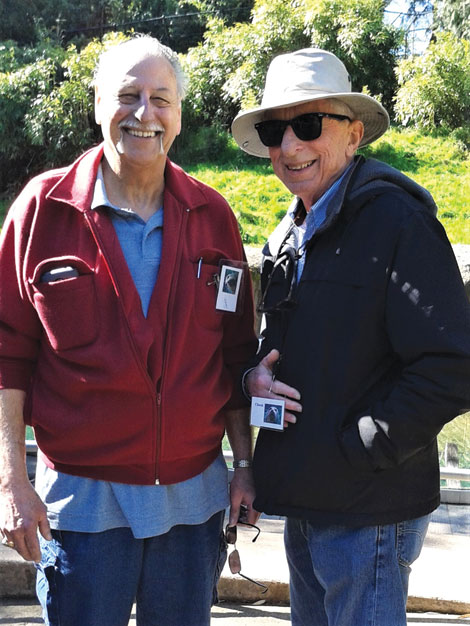Lutheran Community Services Northwest has a new program, Senior Friends, that matches lonely or socially isolated elders with volunteers looking to help.
The program was introduced as another way to help lonely or socially isolated elders maintain their highest level of independent living. The program also provides motivated volunteers with the opportunity to give back to the community by making social connections with an isolated elder.
The mutually supportive relationships that arise through the program are beneficial both to the participants and to the community, said Linda McCone, the program’s coordinator for Lutheran Community Services Northwest (LSCNW).
Kellen Burden, a volunteer with the program, had this to say about his new friend: â€Tony is an amazing human being. He’s seen the world and helped people along the way, and I’m really lucky to get to spend time with him. Hearing his stories and being a part of his day is really a special experience.”
Maybe you know of an elderly neighbor who never seems to leave his house or apartment. Or an acquaintance, now in an assisted living community, who spends all her time alone in her room. These socially isolated elders are not only lonely, but also at a higher risk of early death or other health risks, McCone said.
She added that they are more likely to experience serious injury from a fall, to develop dementia, or to go without needed supplies or services simply because they no longer drive and are unable to get to the store or their doctor appointment. And this is where volunteers can help by being a connection – a senior friend.
Volunteers can also assist elders who may not live alone but are in an isolating situation. Family caregivers can be just as lonely as the loved ones they care for, McCone said, noting that Senior Friends can provide respite, allowing the caregiver space and time for themselves.
Chuck O’Malley, a client with the program, found a cribbage partner in his Senior Friend, Gino Hulme, and looks forward to the weekly visit.
“We’re not friends,†he joked, “we’re opponents – and pretty evenly matched at that.â€
His wife, Nancy, is delighted by the budding friendship.
“When Gino arrives, I leave and don’t have to worry about Chuck, because I know he is in good hands,†she said.
Volunteers and clients, along with family members, have seen a positive benefit from the matches in the few months since the program launched. As Katie Holmes, another volunteer, noted about her client with a diagnosis of dementia, she’s “a lovely woman who I got to know a little by going through old photographs with her. From my perspective it is a great fit. She is the sort of woman I would have been friends with, anyway.â€
The response from the client’s husband, Wayne Stebner, demonstrates the value of social connections. He said his wife, Maureen, now is “talking much better than she has in a long time.â€
Volunteers for the program have passed a background check, submitted an application, and provided three references. Following an initial interview, they participate in a four-hour training that includes information on things to do with elderly clients, signs of abuse and neglect, and what to expect from some of the physical aspects of aging.
Elders desiring a friend are identified by partner programs such as Mercy Housing, Multicare Celebrate Seniority and King’s Manor Assisted Living. New volunteers are matched with clients based upon proximity, common interests or background, and temperament.
LCSNW requires volunteers to be at least 18 years old and able to commit to a minimum of two hours per month for year. Those willing to drive need to have auto insurance and a three-year clear driving record.
Those interested in volunteering can contact McCone at 253-722-5691 or lmccone@lcsnw.org.
Elders interested in having a friendly visitor can contact LCSNW at 253-722-5691 for more information and a referral to a partner agency who can arrange a match.
For lonely elders and the volunteers who befriend them, Gino Hulme, one of the volunteers, noted Senior Friends “brings compassion out of both sides of the relationship.â€
